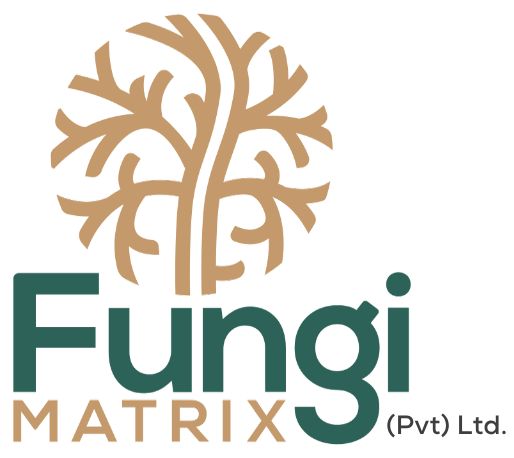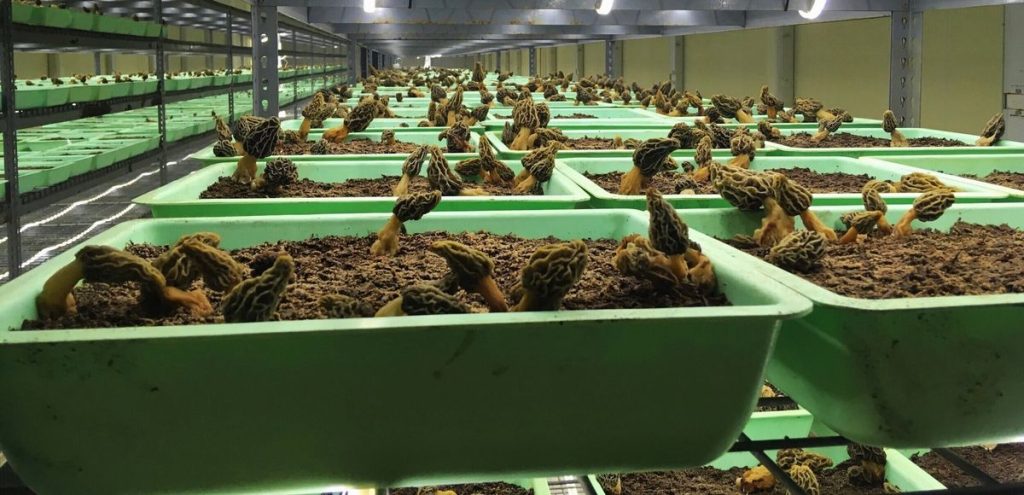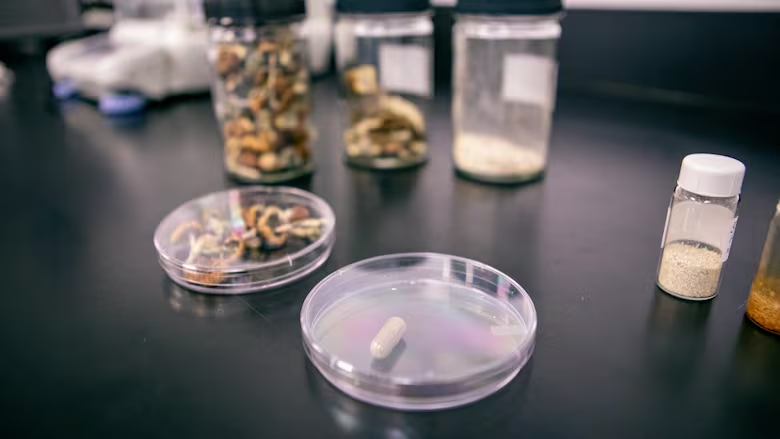Bioactive Compounds in Mushrooms: Opportunities in Pharma and Wellness
Bioactive Compounds in Morel Mushrooms: Opportunities in Pharma and Wellness Dried morel mushrooms (Morchella spp.), prized for their earthy flavor and distinctive honeycomb caps, are gaining attention in the pharmaceutical and wellness industries for their rich array of bioactive compounds. Beyond their culinary value in fine dining across Europe, including France, Spain, Germany, the UK, and Italy, morels offer significant potential for health applications due to their anti-inflammatory, antioxidant, and immune-modulating properties. At FungiMatrix, we supply hand-forged dried morel mushrooms sustainably sourced from Pakistan’s pristine forests, providing premium quality for both gourmet and health-focused markets. This article explores the bioactive compounds in morel mushrooms and their opportunities in pharmaceuticals and wellness products. What Are Bioactive Compounds? Bioactive compounds are naturally occurring chemical substances in foods or plants that exert physiological effects on the human body, promoting health or preventing disease. In morel mushrooms, these compounds include polysaccharides, phenolic compounds, and other secondary metabolites, making them a promising resource for pharma and wellness applications. Key Bioactive Compounds in Morel Mushrooms Dried morel mushrooms retain their bioactive compounds, ensuring year-round availability for research, product development, and culinary use. The drying process preserves these potent molecules, making morels a versatile ingredient for health-focused industries. 1. Polysaccharides Description: Complex carbohydrates, including beta-glucans, found in morel cell walls. Health Benefits: Anti-Inflammatory: Modulate inflammatory pathways, reducing cytokines linked to chronic diseases like arthritis or cardiovascular issues. Immune Modulation: Enhance immune response by stimulating macrophages and T-cells. Anti-Tumor Potential: Early studies suggest polysaccharides may inhibit cancer cell growth, though more research is needed. Applications: Extracts for anti-inflammatory supplements, immune-boosting nutraceuticals, or potential oncology research. 2. Phenolic Compounds Description: Antioxidant molecules, including gallic acid and flavonoids, abundant in morels. Health Benefits: Antioxidant Activity: Neutralize free radicals, protecting cells from oxidative stress and reducing aging or disease risk. Cardiovascular Health: May lower LDL cholesterol oxidation, supporting heart health. Neuroprotection: Potential to protect against neurodegenerative diseases like Alzheimer’s due to antioxidant effects. Applications: Phenolic-rich morel extracts in anti-aging skincare, heart-healthy supplements, or cognitive health products. 3. Selenium Description: A trace mineral with potent antioxidant properties found in morels. Health Benefits: Immune Support: Enhances immune cell function, crucial for populations in low-sunlight regions like the UK or Germany. Thyroid Health: Supports thyroid hormone metabolism. Cancer Prevention: Some studies link selenium to reduced cancer risk, though clinical evidence is ongoing. Applications: Selenium-enriched morel powder for immune-boosting functional foods or dietary supplements. 4. Vitamin D Description: A fat-soluble vitamin naturally present in morels, especially when exposed to sunlight during growth. Health Benefits: Bone Health: Promotes calcium absorption, supporting skeletal strength. Immune Regulation: Enhances immune response, reducing infection risk. Mood Support: May alleviate symptoms of depression, particularly in northern Europe’s winter months. Applications: Vitamin D-fortified morel products for bone health supplements or mood-enhancing functional foods. 5. Ergosterol and Other Sterols Description: Steroid-like compounds in morel cell membranes, precursors to vitamin D2. Health Benefits: Cholesterol Management: May reduce LDL cholesterol levels, supporting cardiovascular health. Anti-Microbial: Exhibits activity against certain bacteria and fungi, with potential in natural preservatives. Applications: Ergosterol extracts for heart-health supplements or antimicrobial agents in wellness products. Scientific Evidence Supporting Morel Bioactives Research underscores the potential of morel mushrooms in health applications: Polysaccharides: A 2018 study in Food & Function demonstrated anti-inflammatory and immune-modulating effects of fungal polysaccharides, applicable to morels. Phenolic Compounds: Journal of Food Science (2020) confirmed morels’ high phenolic content, linked to antioxidant and cardiovascular benefits. Selenium and Vitamin D: Studies in Nutrients (2019) highlight their roles in immune and bone health, abundant in morels. Ergosterol: Research in Molecules (2021) suggests fungal sterols’ potential in cholesterol management and antimicrobial applications. Note: Raw morels contain compounds that may cause digestive issues; all products must be processed or cooked to ensure safety. Further clinical trials are needed to validate therapeutic claims. Opportunities in Pharmaceuticals Morel mushrooms’ bioactive compounds offer promising avenues for pharmaceutical research and development: Anti-Inflammatory Drugs: Polysaccharide extracts could lead to novel treatments for chronic inflammatory conditions like rheumatoid arthritis or inflammatory bowel disease. Antioxidant Therapies: Phenolic compounds may be developed into therapies for oxidative stress-related diseases, such as cardiovascular or neurodegenerative disorders. Immunomodulatory Agents: Beta-glucans and selenium could be used in drugs to enhance immune function, particularly for immunocompromised patients. Oncology Research: Preliminary studies on polysaccharides suggest anti-tumor potential, warranting further investigation for cancer therapies. Natural Antimicrobials: Ergosterol’s antimicrobial properties could inspire new antibiotics or antifungal agents, addressing antibiotic resistance. Opportunities in Wellness Products The wellness industry, particularly in Europe, is embracing functional ingredients like morels for health-conscious consumers: Nutraceuticals: Capsules or powders with morel extracts for anti-inflammatory, immune, or antioxidant benefits. Vitamin D-enriched morel supplements for bone health or mood support, popular in France and the UK. Functional Foods: Morel powder in smoothies, soups, or energy bars for digestive and immune health, appealing to Spain’s health-focused market. Morel-infused oils or spreads for heart-healthy diets, gaining traction in Germany. Skincare and Cosmeceuticals: Phenolic-rich morel extracts in anti-aging creams or serums, leveraging antioxidant properties for skin health, popular in Italy. Beverages: Morel-based teas or health drinks for immune and anti-inflammatory benefits, aligning with Europe’s wellness trends. Challenges and Considerations Processing Safety: Morels must be cooked or processed to eliminate potential toxins, requiring strict quality control in pharma and wellness production. Research Gaps: While promising, many bioactive benefits require further clinical trials to establish efficacy and dosage. Sustainability: Increased demand must be met with sustainable foraging to prevent habitat depletion, a commitment FungiMatrix upholds. Cost: Morels’ premium price may limit scalability, necessitating innovative extraction methods to maximize yield. Practical Steps for Utilizing Morel Bioactives Extraction Methods: Use solvent-free or water-based extraction to isolate polysaccharides and phenolics for supplements or drugs. Rehydration for Culinary Use: Soak dried morels in warm water or stock for 20–30 minutes to release bioactives for functional foods. Quality Assurance: Test for bioactive content and contaminants to ensure safety and efficacy in wellness products. Culinary Integration: Chefs in France, Italy, and Spain can incorporate morels into functional dishes like risottos or tapas, blending health and flavor. Culinary


